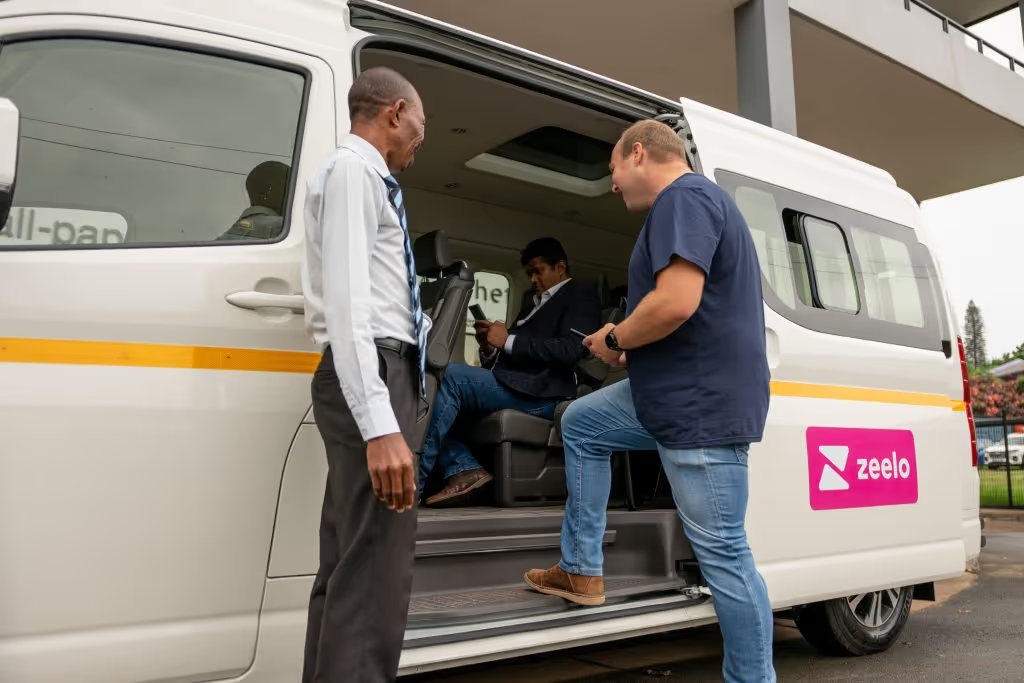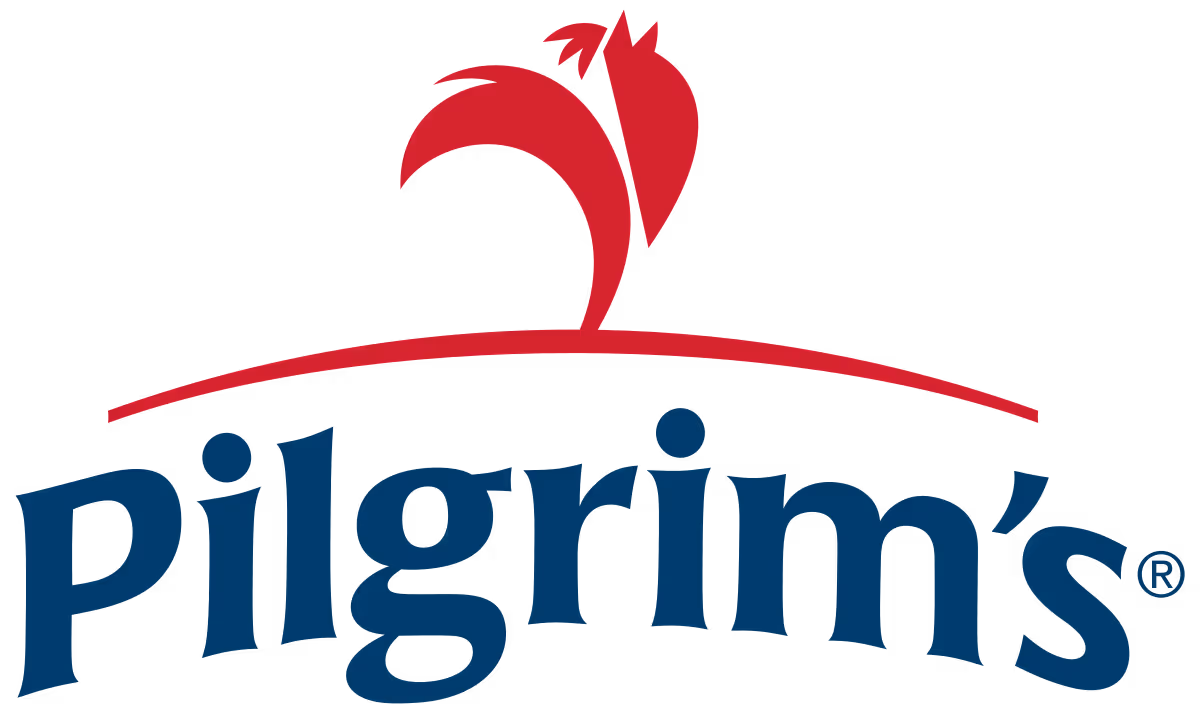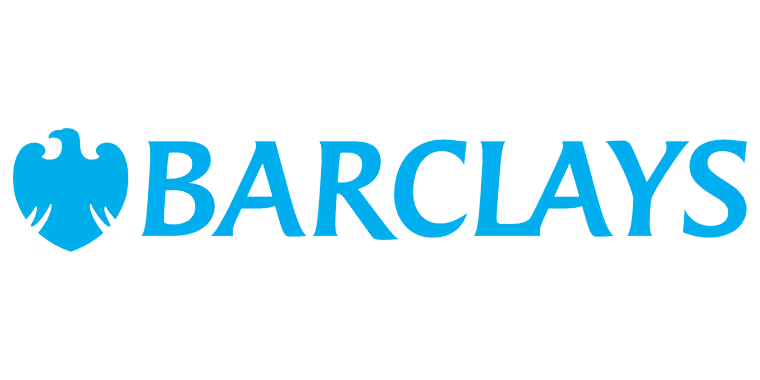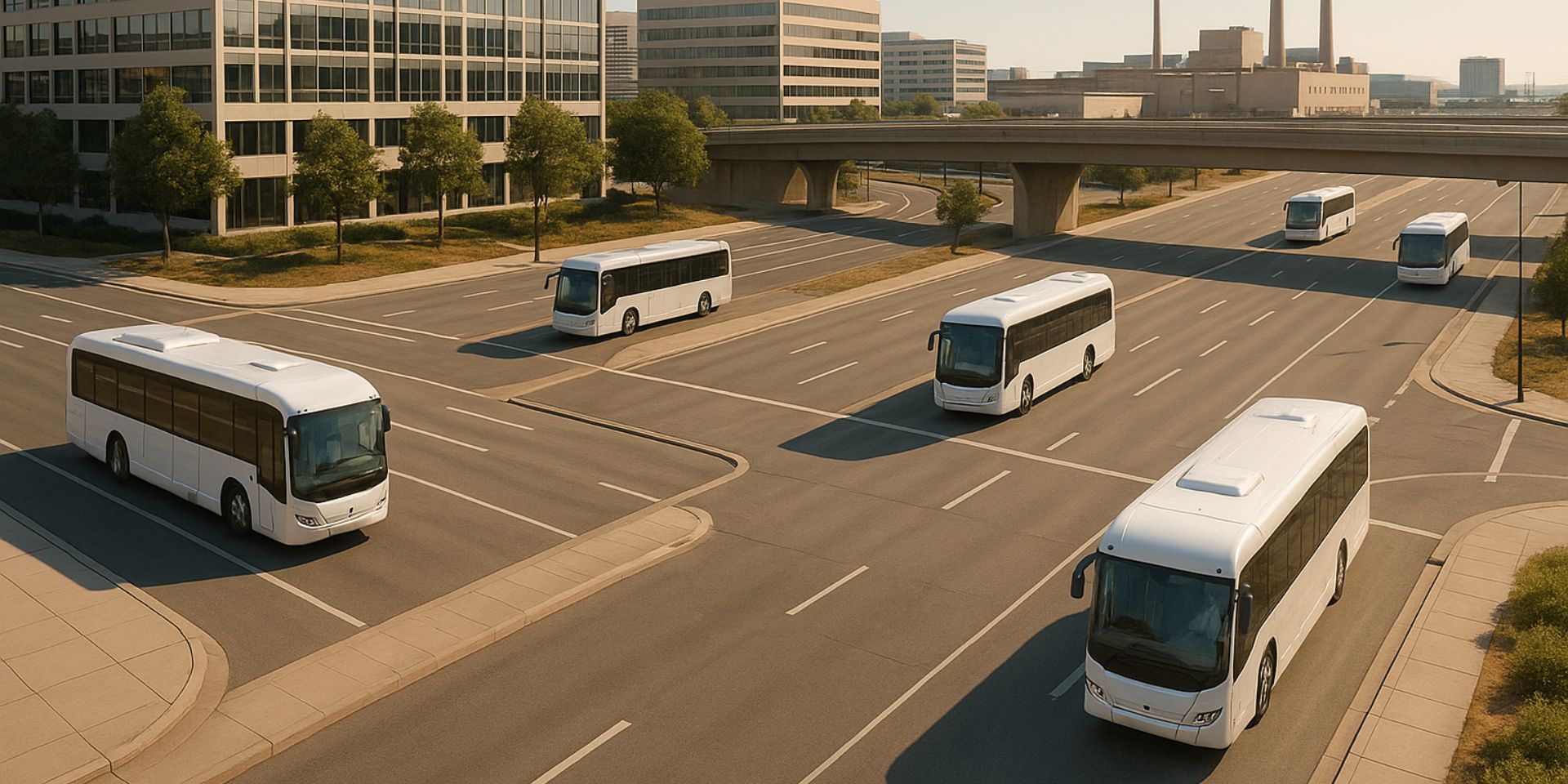The Current State Of Public Transportation In South Africa
.avif)
Behind travelling for education, trips to and from the workplace were the second most common reason for household travel in South Africa. South Africa’s transport infrastructure also suffers from fluxed ridership; where some workers are forced to drive due to a lack of safe and reliable transport solutions whereas others often have no other choice but to use public transport in spite of the challenges and unreliability.
According to the 2020 National Household Travel Survey in South Africa (NHTS), it was reported that 43.5% of workers made use of private transport (car/bike) solutions in their commute to work. In contrast, only 35% used public transport (bus/train/taxi). In fact, ridership on public transport has been significantly decreasing over the past decade, in part due to a severe lack of reliability and inflated costs associated with travel.
Transport costs are at an all-time high in South Africa. The rising cost not only affects the quality of life but has a negative impact on employment as opportunities could simply slip out of financial reach. The genuine concern is that many workers simply cannot afford to get to work using existing transit means, and approximately twenty percent of workers have reported walking all the way to work on a daily basis. With costs reaching R960 a month on average for a worker making use of taxis to get to work, over R745 for buses, and R581 for trains, the need for mass overhaul and reform in the public transportation sector of South Africa will be crucial for the countries future growth and continued development.
The Department of Transport has the daunting task of finding an affordable and efficient means of public transport that serves its people and increases the opportunities to better their lives.
Ongoing Challenges For Public Transport In South Africa
Taxis
Minibus taxis are the most commonly used method of transport by people in urban areas of South Africa, yet despite their widespread usage, taxi companies are unregulated and relationships with the government are tenuous. Very little is known about the inner workings of taxi companies in South Africa despite repeated attempts to create dialogue and impose regulations and as such, minibus taxis remain a lucrative and independent yet territorial enterprise.
Minibus taxis in South Africa are also among the more expensive transport options which have capitalised on the high demand for the service and often see monthly travel expenditure reaching nearly R1000 on average. Minibus taxis accounted for most public transport users in South Africa (a little over 80%) for commuting purposes though many are finding the costs just too expensive to justify; particularly in relation to an inflated cost of living.
Buses
There are no centralised bus operators running in South Africa, with multiple companies running within each municipality depending on the size of a city or population density. Yet despite the abundance of bus services in the country, a significant decrease was recorded in the number of households who used a bus to travel, whether that be to work or to school.
Buses in South Africa provide a moderately cheaper alternative to travelling by taxi (nearly R800 a month on average) but sacrifice safety and reliability; buses are often late and do not adhere to strict timetabling; if they arrive at all. MyCiti buses in Cape Town are infinitely safer options than many other forms of public transit because of the added safety and surveillance cameras located in most buses though unfortunately, these features are not commonplace throughout the rest of the country’s bus operations.
And whilst the South African government is working hard to create an equitable public bus system that addresses poverty, access, and inequality, the speed at which such action is being taken is frustratingly slow and fails to address the needs of those suffering from lack of such provision.
Trains
Trains are one of the cheaper forms of transportation in South Africa (nearly R600 on a monthly average), yet concerns have often been raised about the safety of passengers on (Metrorail) trains in major urban areas of the country.
The Metrorail system has 471 stations and a total track length of 2,228 kilometres, with an average of 1.7 million passengers every day. Despite advertised timetables on their website, commuters frequently forfeit safety and reliability because Metrorail lacks any kind of structured efficiency. In fact, 37.8% of users complained that schedules or timetables were effectively unavailable or down. According to polls, trains either do not arrive at all or arrive significantly later than scheduled. This can often result in passengers waiting around for trains and being left vulnerable to muggings or robberies.
For those using trains to commute to work in the morning, it was reported that an average of 107 minutes were spent in active travel, a sharp contrast to those travelling by bus (84 minutes), and those travelling by taxi (63 minutes). These are each significantly higher than the time it would take a commuter who is driving themselves to work (44 minutes).
Addressing Suitable Alternatives To Public Transport
In South Africa, public transportation is on the rise. Hopefully, dynamic and captivating initiatives will be developed to increase people’s access and favourable attitude towards public transportation and, as a result, a socio-economic boost to the cities and towns where they are located. Yet for now, we can take a look at some of the safer, reliable and cost-effective alternatives to public transport.
We have already looked at how a percentage of workers currently walk to work on a daily basis – often taking journeys lasting from 15 minutes to over an hour. For some, this can be due to proximity, but sadly for others, this journey is born from necessity rather than practicality.
Where they can, a large number of South Africans (55.5%) choose to drive to work in single-occupancy vehicles. While this is generally thought to be the safest mode of transportation in the country, it is not the most environmentally friendly. Naturally, reducing the use of private cars is a popular suggestion. However, because public transportation is badly managed, underfunded, and unreliable, people often consider private car ownership to be the better option.
This is where Zeelo can help. Commuters can find the ideal solution for their daily travel with one of Zeelo’s shared transportation services, which can respond to passenger demand through optimal route planning based on local data collected. With private vehicle management supported by live tracking systems and 24/7 client support, safety is no longer an issue. Zeelo enables commuters to travel securely, reducing the stress and cost of their commute while also eliminating the need for on-site parking.

Another way Zeelo can play a vital role is by the provision of affordable, safe and reliable transportation for workers undertaking night shift work. As part of the Basic Conditions of Employment Act, 1997 which makes provision for employees working night shift (between the hours of 6pm – 6am) there is currently no legal requirement for employers to provide transport to employees who perform night work, however transportation must be available between the employee’s place of residence and the workplace at the commencement and conclusion of the employee’s shift. Should this not be available, employees cannot be coerced into working such inaccessible shifts. That is where Zeelo can play its part. We can work with employers to create accessible transport solutions for their employees; keeping them safe and maximising staff retention and productivity.
Through its corporate partnerships, Zeelo’s shared transportation networks also alleviate traffic congestion and will combat the negative impact of transport on the environment through its carbon neutrality; with an environmentally conscientious journey that offsets around 3.5kg of CO2 emissions per ride.
Get in touch with us today to find out more about how you can access safer, reliable and cost-effective staff commuter transportation solutions.
We help companies and schools achieve their transportation program goals
Corporate shuttles


Warehouse/Distribution


Schools & Universities


Become a partner


Want to know how we can help you?












